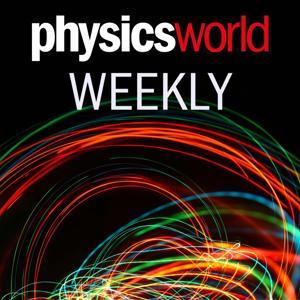Episode overview
This episode of The New Quantum Era features a conversation with Quantum Brilliance co‑founder and CEO Mark Luo and independent board chair Brian Wong about diamond nitrogen vacancy (NV) centers as a platform for both quantum computing and quantum sensing. The discussion covers how NV centers work, what makes diamond‑based qubits attractive at room temperature, and how to turn a lab technology into a scalable product and business.
What are diamond NV qubits?
Mark explains how nitrogen vacancy centers in synthetic diamond act as stable room‑temperature qubits, with a nitrogen atom adjacent to a missing carbon atom creating a spin system that can be initialized and read out optically or electronically. The rigidity and thermal properties of diamond remove the need for cryogenics, complex laser setups, and vacuum systems, enabling compact, low‑power quantum devices that can be deployed in standard environments.
Quantum sensing to quantum computing
NV centers are already enabling ultra‑sensitive sensing, from nanoscale MRI and quantum microscopy to magnetometry for GPS‑free navigation and neurotech applications using diamond chips under growing brain cells. Mark and Brian frame sensing not as a hedge but as a volume driver that builds the diamond supply chain, pushes costs down, and lays the manufacturing groundwork for future quantum computing chips.
Fabrication, scalability, and the value chain
A key theme is the shift from early “shotgun” vacancy placement in diamond to a semiconductor‑style, wafer‑like process with high‑purity material, lithography, characterization, and yield engineering. Brian characterizes Quantum Brilliance’s strategy as “lab to fab”: deciding where to sit in the value chain, leveraging the existing semiconductor ecosystem, and building a partner network rather than owning everything from chips to compilers.
Devices, roadmaps, and hybrid nodes
Quantum Brilliance has deployed room‑temperature systems with a handful of physical qubits at Oak Ridge National Laboratory, Fraunhofer IAF, and the Pawsey Supercomputing Centre. Their roadmap targets application‑specific quantum computing with useful qubit counts toward the end of this decade, and lunchbox‑scale, fault‑tolerant systems with on the order of 50–60 logical qubits in the mid‑2030s.
Modality tradeoffs and business discipline
Mark positions diamond NV qubits as mid‑range in both speed and coherence time compared with superconducting and trapped‑ion systems, with their differentiator being compute density, energy efficiency, and ease of deployment rather than raw gate speed. Brian brings four decades of experience in semiconductors, batteries, lidar, and optical networking to emphasize milestones, early revenue from sensing, and usability—arguing that making quantum devices easy to integrate and operate is as important as the underlying physics for attracting partners, customers, and investors.
Partners and ecosystem
The episode underscores how collaborations with institutions such as Oak Ridge, Fraunhofer, and Pawsey, along with industrial and defense partners, help refine real‑world requirements and ensure the technology solves concrete problems rather than just hitting abstract benchmarks. By co‑designing with end users and complementary hardware and software vendors, Quantum Brilliance aims to “democratize” access to quantum devices, moving them from specialized cryogenic labs to desks, edge systems, and embedded platforms.




































